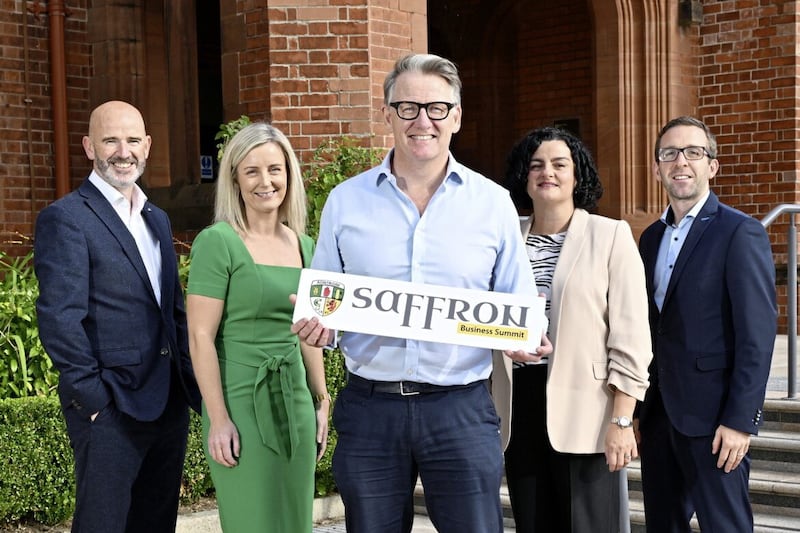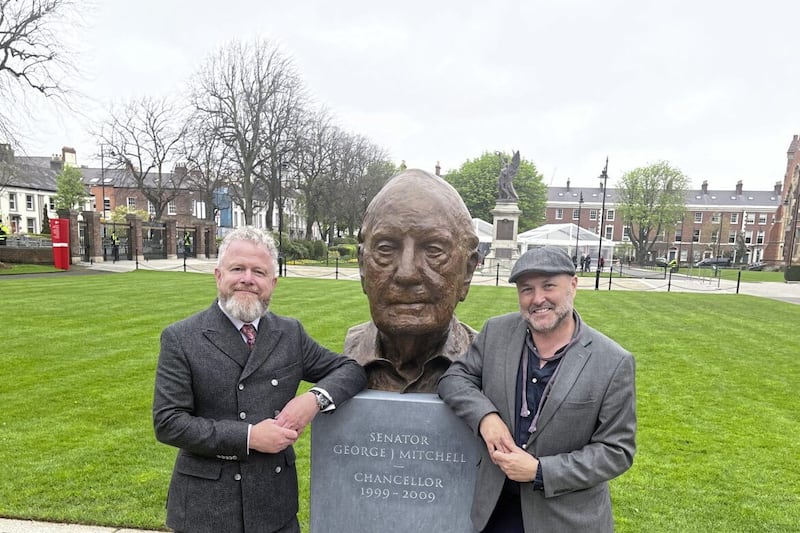On the night of October 16 1998, I was in the grandest old hotel in downtown Denver, Colorado.
Wrapped around a big street corner in sandstone and red granite, the design and distinctive triangular shape of the Brown Palace Hotel make it a US architectural gem. It has the feeling of a really swish western saloon, and having never been in cowboy country before, I loved it.
But I was working, and it was busy. Following the signing of the Good Friday Agreement in April that year, the IDB (now Invest NI) had put together an 11-city tour of North America to help drive investment to ‘build the peace’.
I was a media consultant to IDB and my job (along with a hired US PR agency) was to get as much press coverage as possible in the US for the tour and its inward investment message. The tour had started with much fanfare in New York, and Denver was the sixth city after Toronto, Boston, Philadelphia and Chicago.
The tour was led by the First and Deputy First Ministers at the time, David Trimble and Seamus Mallon. What a contrast those two were. The whole group (about 25 people) was travelling in a large private jet and when we were transferring between cities and maybe after a big investment dinner, Mallon would get on the plane and have a whisky at the bar and chat to everybody. Trimble was just so much more private and would go straight to his seat and read his ancient Greek history by Herodotus (I actually did ask him what he was reading at the time).
Earlier in the day of October 16, I had travelled as part of a small group with the First Minster to see a company outside Denver. Trimble was due to go home the next day to be replaced by Jeffrey Donaldson and his party press officer had already left. That meant I was the only official press person remaining and I was a consultant to IDB, not a civil servant.
Lord Trimble (as he now is) was in good form so I decided to broach the subject of the Nobel prize he was being tipped to win the following day. He didn’t want to talk about it. And yet, for me, if it happened, it was going to be the biggest chance for media coverage of the entire tour and a golden opportunity to drive home our investment message.
I could fill today’s paper with the events that took place in The Brown Palace hotel overnight between the 16th and 17th (the First Minister’s calls were diverted to my room in the hotel – Stockholm being eight hours ahead of Denver), but suffice to say he was awarded the prize and the media frenzy began.
The First Minister did one quick interview (I had tried to set up a press conference) and then got on with his work of hosting that morning’s business breakfast, which of course, he did very well. However, there were maybe 100 people at the breakfast, I had all of the US’s top morning news programmes looking for an interview – with a potential audience of 50 million people.
I had to turn them all down, though they did have John Hume in Derry, who spent that day doing media interviews, particularly with the American networks.

Like most people of a certain generation, I’ve been appreciating the life of John Hume over the last few days and wondering if there was a way of looking at his immense contribution from a business perspective. And then I remembered October 17 1998.
On that day, as he’d done so many times before, Hume saw the bigger picture. He recognised the opportunity to use the award to put out a very straightforward message about building the peace through investment.
David Trimble in his own way, had done an excellent job in the US, but he had far more pressure on him from unionism and he had his (valid) reasons to be careful with the Nobel announcement. As the years have gone on, I’ve realised that and have even laughed to myself about turning down a prime slot on ABC’s Good Morning America.
Still, when thinking about Hume and trying to use his example for lessons in business, my dominant thought is his strategic, bigger-picture thinking. Persuading the Irish and US administrations to back his approach which led to the changes in the British government’s position in the Downing Street Declaration; engaging with the republican movement to initiate the ceasefires and a more political route to peace and creating the three strands of relationships which needed to be addressed in the Good Friday Agreement are just a few examples of his ability to see a desired outcome and then devise a bigger picture strategy to get us there. Nobody has come close to Hume in recent Irish politics in that regard.
Even in real business terms, Hume’s ability to recognise the importance of access to finance through his work in the setting up of the Derry Credit Union in 1960 created a chance for equality of opportunity for the Catholic community which hadn’t previously existed.
Hume had learned of credit unions in the America and helped to bring the idea home. At the age of just 27 in 1964, Hume became the youngest ever President of the Irish League of Credit Unions, a position he held until 1968 when civil rights took over.
Hume looked at a broader canvas, he had a future vision of equality and peace and he was able to not just identify how to make that happen but he was also brilliant at working the levers that needed to be pulled.
That’s a rare ability and yet it’s so simple too. In business, as in politics, making things simple, keeping to a focus and building coalitions of mutual interest (or networks) are all keys to success.
Hume spent his life in pursuit of his vision, supported by his wife Pat, his family and many colleagues and friends at home abroad and abroad. We were very lucky to have him. John Hume RIP.
Paul McErlean (paul@mcepublicrelations.com) is managing director and founder of MCE Public Relations.








